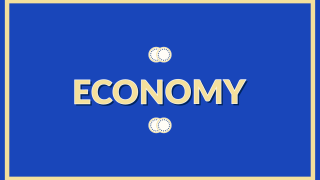Success and opportunity are in the air and even the most modest of citizens alludes to the future. The question is what sustains this flagrant optimism to such a degree. Brazil impresses us because of the attitude of its population and because the possibility of development has grown despite the obstacles imposed by its impenetrable bureaucracy, the deteriorated infrastructure, and the existence of oligopolies in one market after another. What impressed me most in a recent visit was their daring and the way they do not allow themselves to be intimidated by the adverse conditions: instead of complaining, they do whatever they must to be successful. The contrast of Brazil with Mexico is impressive, not due to its developmental strategy but, rather, to the attitude of its people.
The obvious explanation for its recent success is found in two circumstances: a predictable environment, which is the product of a set of serious although relatively modest reforms, but, above all, the continuity of their economic policy. President Cardoso carried out reforms in the nineties and President Lula continued these without changing course: the rhetoric changed but the path was maintained. On the other hand, the Brazilians have had the exceptional leadership of two presidents, in particular the second of the two. Lula transformed Brazil not only by his decision to maintain the course (no mean feat) but because, on not changing things or implementing radical measures, he consolidated the democratic institutions. In addition, he privileged the future over the daily problems and convinced the population to stay the course. Attitude and leadership worked magic.
An interesting country, big and diverse, with enormous distances, Brazil lacks a railroad infrastructure, which saturates the highways with cargo trucks. Foreign commerce suffers from the poor ports and connections with the interior. The most successful exports –meat, grains, and minerals- work because their production is found near the coast.
The obvious question for a Mexican visitor is what have they done that is distinct, what has given them the strength about which they boast today. Without doubt, the difference lies in their attitude and the leadership, because in structural terms, there is more myth than accomplishment. The Brazilian government collects many more taxes than the Mexican government (most of the difference are taxes raised at the state and local level), but their expenditures are not very praiseworthy; in fact, it could be argued that more money has done nothing other than promote Pharaonic projects that are, moreover, costly in legal tender and in results: from the construction of Brasilia, that bureaucratic monster distant and isolated from the daily reality, up to its industrial policy.
Lula’s great project was to finance the poorest families with a program similar to Oportunidades, whose contribution (just like in Mexico) was that millions of persons became incorporated into the consumer circuits: his explicit objective was to create a middle class society. What Lula did not do away with was the promotion of Brazilian industry: the government has financed the internal and external expansion of many private enterprises just because they are Brazilian. The great question mark is who has paid for this and how this has been paid for. The answer is very simple: very high taxes generate sufficient funds for all types of projects, but at the expense of the population. A Toyota Corolla car, which in Mexico has a price tag of 256,000 pesos, costs Brazilians 524,000 pesos. As economists say, there is no free lunch.
Therein dwells the main difference: in the 1980s, Mexico opted for placing the consumer as the beneficiary and the objective of the economic policy, while the Brazilian policy favored the business corporations. Everything else derives from this strategic focus: the government of Brazil does everything possible to strengthen the capitalization of its enterprises, to raise their profitability, and to protect them from the competition. This does not imply that the country is closed to imports, but rather, that its central objective resides in the construction of an economy strongly influenced by the government. The result is that consumers have access to products that are much more expensive and of worse quality than Mexicans do. Some day Brazil will liberalize its markets and this will entail a severe adjustment, such as the one we already went through in the past couple of decades. Much of that history is yet to be written.
In contrast with Brazil, which has been consistent in its economic strategy, we have been barging about: something opens, another closes. There is no consistency, no sense of direction: we have not dared to take the citizen model to politics, monopolies, and privileges. The absence of strategy and of leadership explains in good measure the different perceptions that we Mexicans and the Brazilians entertain with regard to the present and, above all, about the future.
There is another substantive difference. Although the numbers of homicides as a percentage of the population are worse in Brazil, the reality is that these are two distinct phenomena at play. Brazil is confronting a huge problem of criminality in some cities, beginning with Río de Janeiro, but it is not a problem that expands on a day-to-day basis to the rest of the country as occurs in Mexico. In addition, Brazil has been serious about creating strong policing capacity and has chosen “creative” ways of facing its ills, such as taking the World Soccer Cup and the Olympic Games to, precisely, Río, both projects conceived, at least in part, as means to clean up saturated zones of criminals and to transform the region. The problems they face are very different in nature from those that Mexico confronts and cannot be compared just by the statistics.
Perhaps the important question would be whether Mexican could do something similar, that is, to strengthen the government as a factor of development and to protect and subsidize the productive plant. Brazil’s internal market is much bigger than that of Mexico, which affords it a relative advantage; however, the true difference lies in that Brazil has had a tremendous source of financing –its exports to China- that have permitted it to fund all sorts of projects (and excesses) through the public purse. Additionally, the funds that they were able to obtain for the development of new oil fields will procure for them immense cash flows that, employed intelligently, could do miracles. If one recalls, at various times, Mexico has enjoyed a similar windfall that has, nevertheless, left little. The problem, there and here, lies in the manner in which the money is employed. When the external conditions change, Brazil will be obliged to carry out a great fiscal adjustment; although the Brazilians have had great sense of direction, when that happens, it is not obvious that they will be more successful that we have been.
Mexico and Brazil opted for distinct modes of interaction with the rest of the world; however, nothing guarantees that their model is superior to ours. What is clear is that success lies in how competent the strategy is for achieving development: neither has found the Midas touch. All things considered, the fundamental difference is one of focus and vision: Brazil has a plethora of optimism. A little good leadership and clarity of objectives here could also do magic.
Daring






Comments